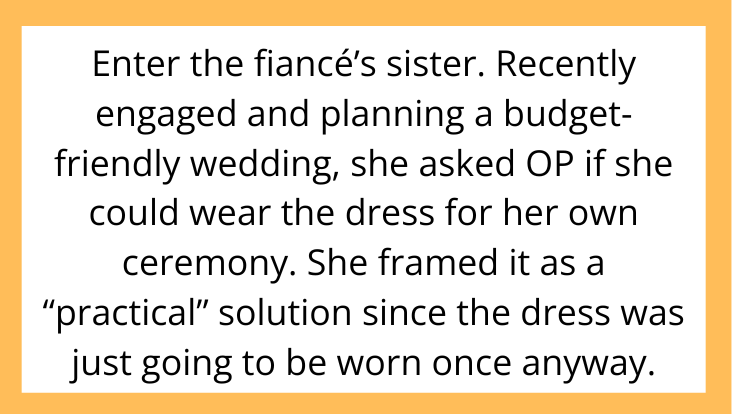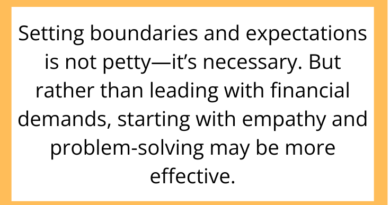Am I the Jerk for Refusing to Let My Fiancé’s Sister Wear My Wedding Dress?
Weddings are a time for love, celebration, and… unexpected family drama. In a recent post from the r/AITAH subreddit, one bride-to-be found herself facing an emotionally charged situation when her future sister-in-law asked to borrow something more than just a pair of shoes—her actual wedding dress.
What followed was a tangled mix of family expectations, boundaries, and a question that divided opinions: Are you obligated to say yes just because it’s “family”?
The Situation: A Dress with Meaning

The Original Poster (OP), a soon-to-be bride, shared that she had picked out her dream wedding dress—a gown she had saved for and cherished deeply. It was sentimental, not just because of the cost, but because it marked a major moment in her life and symbolized her personal journey.
Enter the fiancé’s sister. Recently engaged and planning a budget-friendly wedding, she asked OP if she could wear the dress for her own ceremony. She framed it as a “practical” solution since the dress was just going to be worn once anyway.
OP said no, citing the emotional value and the fact that the dress was tailored specifically for her. That’s when the drama erupted. Her fiancé’s family accused her of being selfish, materialistic, and not understanding the importance of sharing within a family.
Now OP is asking: Am I the jerk for not letting my future sister-in-law wear my wedding dress, even though I won’t wear it again?
Boundaries and Sentiment: More Than Just Fabric
A Wedding Dress Is Often a Symbol, Not Just Clothing

For many brides, the wedding dress isn’t just an outfit—it’s a keepsake. It’s a memory. It’s part of a story. OP’s refusal wasn’t about greed; it was about emotional preservation.
Wearing a wedding dress is a personal experience tied to an individual’s love story. Passing it on—especially before you’ve even worn it—can feel like letting go of part of that story.
Not Everything Needs to Be Shared
Families thrive on love and generosity, but that doesn’t mean every personal item should be up for grabs. Whether it’s a dress, a car, or a diary, some things are simply too personal to lend out—even to family.
OP drew a line based on her values and comfort level. That boundary should be respected, not attacked.
The Family Fallout: When Expectations Collide with Autonomy
The “You’re Selfish” Argument
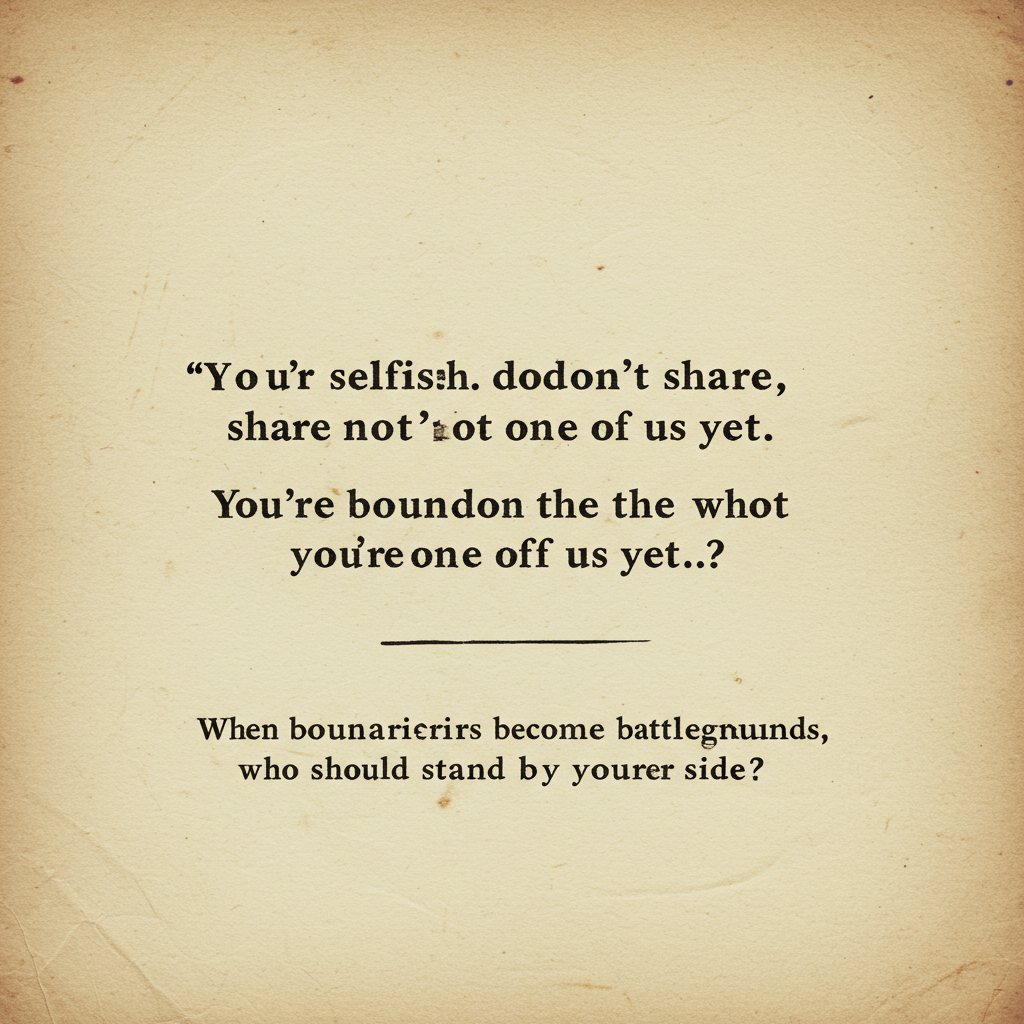
After OP said no, her fiancé’s family began pressuring her, claiming she was putting “things” over “people.” That she wasn’t being welcoming or kind to her future in-laws.
But setting healthy boundaries doesn’t make someone selfish. In fact, forcing someone to give up something meaningful against their will is a much bigger red flag.
As one Redditor put it: “Wanting to keep something sentimental is not selfish. Expecting someone else’s sentimental item because it’s convenient? That’s entitlement.”
Red Flags in the Relationship?
Several commenters noted that the fiancé’s reaction—or lack of support—was concerning. Instead of backing up OP, he stayed silent or tried to stay neutral, saying things like “Just let her borrow it to keep the peace.”
That’s a problem. Weddings should be a time when couples support one another, especially when it comes to outside pressure. If OP’s boundaries are being trampled before the wedding, what might the future hold?
Practical Considerations: It’s Not Even About the Money
A Dress Tailored for One Body
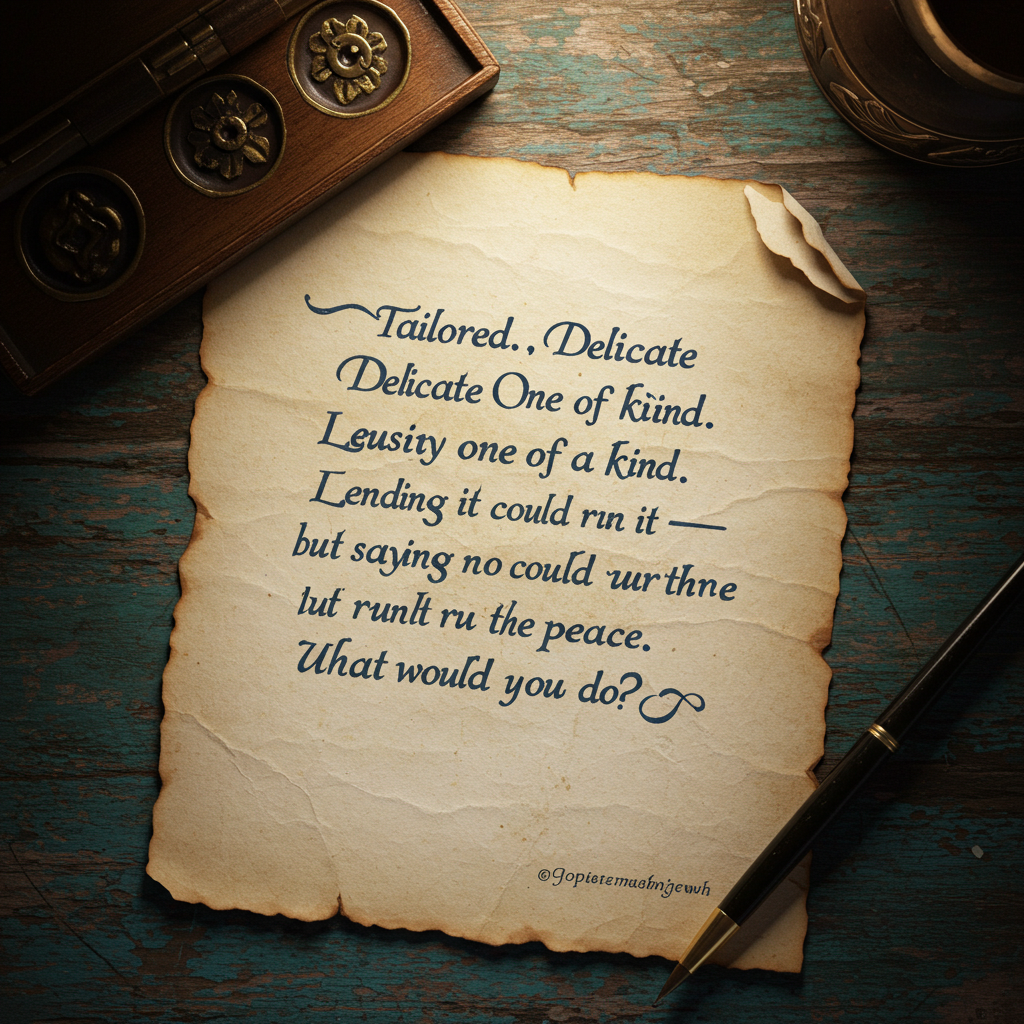
Wedding dresses are often custom-fitted, and major alterations can ruin both the design and future wearability. OP was worried that lending it out could damage the dress or permanently change it.
Even if the sister-in-law promised to “return it in perfect condition,” accidents happen. Spills, rips, and even different body shapes could irreversibly alter the gown.
Lending Leads to Tension
Many users shared their own stories of lending sentimental items and regretting it. Even when returned, things rarely come back in the same emotional state.
And if the relationship ever sours—say, post-wedding drama—it could lead to resentment or conflict tied directly to that shared item.
What the AITAH Community Had to Say
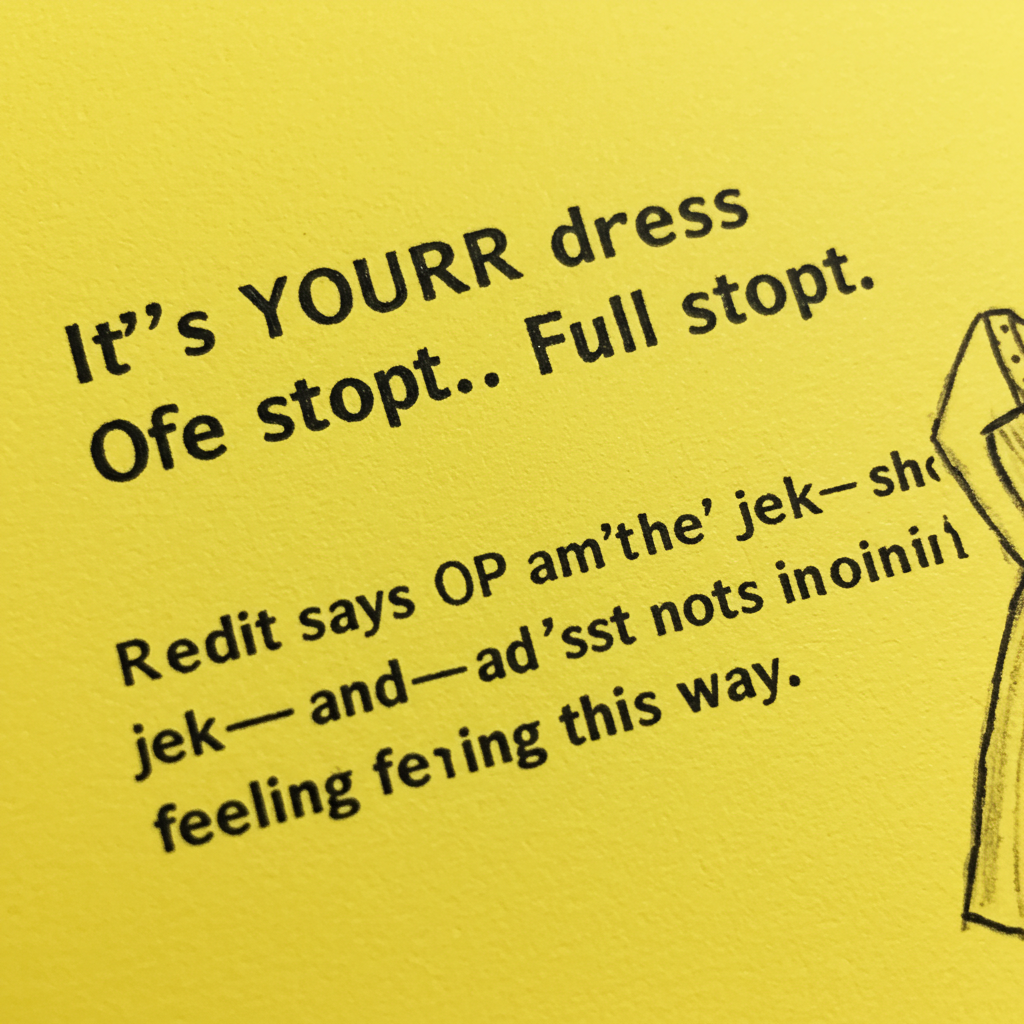
Reddit’s consensus? Not the jerk.
Here are some standout responses:
“It’s YOUR dress. Full stop. You don’t owe anyone access to it.”
“If she wants a similar dress, she can get inspiration from yours—not borrow it.”
“This is a boundary issue. And your fiancé should be standing up for you, not siding with guilt-trippers.”
Others pointed out that the sister-in-law could easily rent a gown or buy a secondhand one. It’s not about necessity—it’s about entitlement wrapped in faux sentimentality.
Final Thoughts: Boundaries Are Valid, Even at Weddings
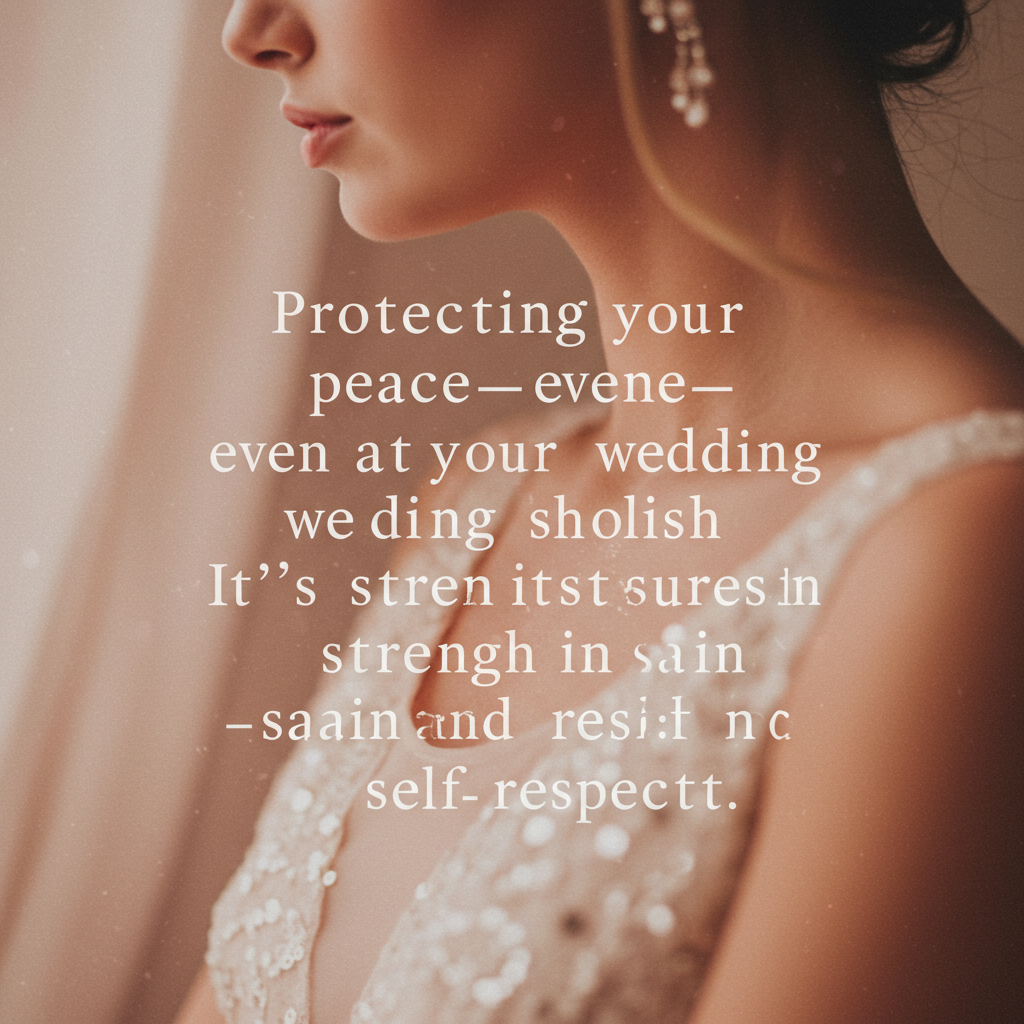
Weddings are highly emotional events, and it’s easy for family dynamics to become magnified. But just because you’re marrying into a family doesn’t mean you lose your voice, values, or right to say no.
OP’s dress isn’t just a piece of clothing—it’s a symbol of her love story. And she has every right to protect it.
Standing up for yourself doesn’t make you the villain. It makes you confident in your choices and clear about your boundaries. And if someone takes issue with that? Maybe it says more about them than it does about you.
